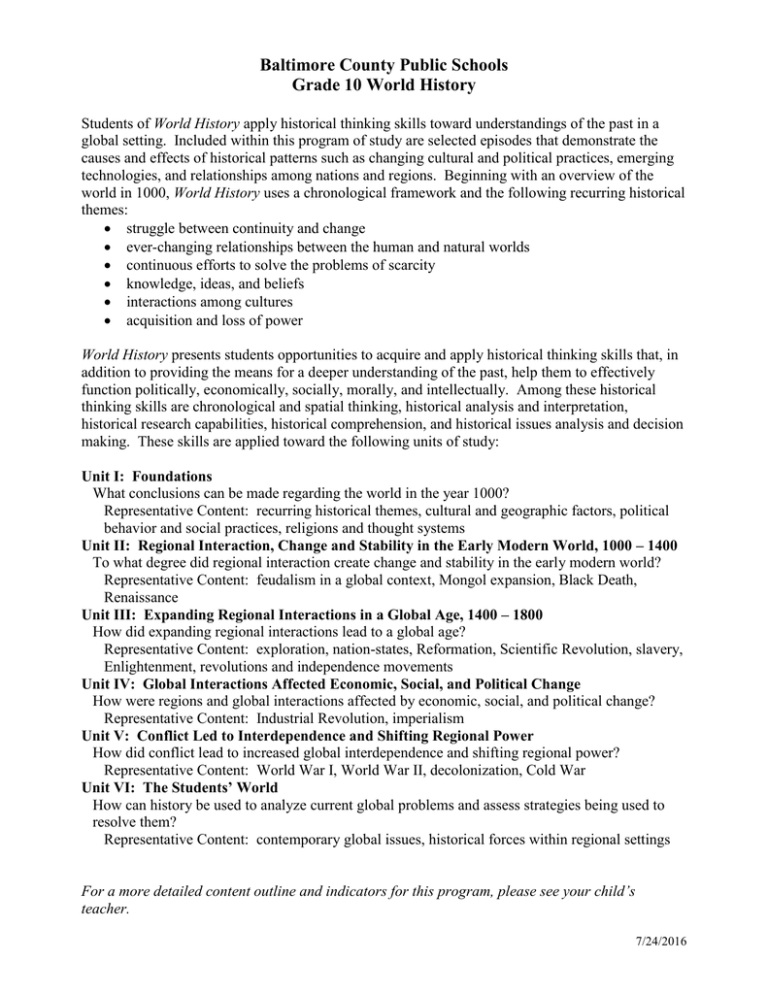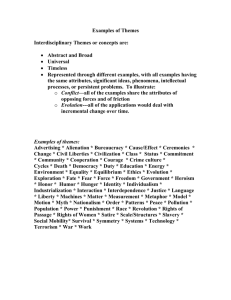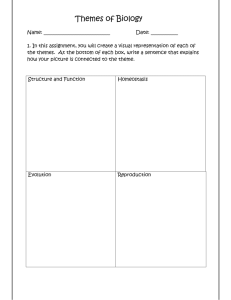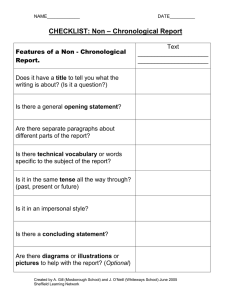Baltimore County Public Schools Grade 10 World History
advertisement

Baltimore County Public Schools Grade 10 World History Students of World History apply historical thinking skills toward understandings of the past in a global setting. Included within this program of study are selected episodes that demonstrate the causes and effects of historical patterns such as changing cultural and political practices, emerging technologies, and relationships among nations and regions. Beginning with an overview of the world in 1000, World History uses a chronological framework and the following recurring historical themes: struggle between continuity and change ever-changing relationships between the human and natural worlds continuous efforts to solve the problems of scarcity knowledge, ideas, and beliefs interactions among cultures acquisition and loss of power World History presents students opportunities to acquire and apply historical thinking skills that, in addition to providing the means for a deeper understanding of the past, help them to effectively function politically, economically, socially, morally, and intellectually. Among these historical thinking skills are chronological and spatial thinking, historical analysis and interpretation, historical research capabilities, historical comprehension, and historical issues analysis and decision making. These skills are applied toward the following units of study: Unit I: Foundations What conclusions can be made regarding the world in the year 1000? Representative Content: recurring historical themes, cultural and geographic factors, political behavior and social practices, religions and thought systems Unit II: Regional Interaction, Change and Stability in the Early Modern World, 1000 – 1400 To what degree did regional interaction create change and stability in the early modern world? Representative Content: feudalism in a global context, Mongol expansion, Black Death, Renaissance Unit III: Expanding Regional Interactions in a Global Age, 1400 – 1800 How did expanding regional interactions lead to a global age? Representative Content: exploration, nation-states, Reformation, Scientific Revolution, slavery, Enlightenment, revolutions and independence movements Unit IV: Global Interactions Affected Economic, Social, and Political Change How were regions and global interactions affected by economic, social, and political change? Representative Content: Industrial Revolution, imperialism Unit V: Conflict Led to Interdependence and Shifting Regional Power How did conflict lead to increased global interdependence and shifting regional power? Representative Content: World War I, World War II, decolonization, Cold War Unit VI: The Students’ World How can history be used to analyze current global problems and assess strategies being used to resolve them? Representative Content: contemporary global issues, historical forces within regional settings For a more detailed content outline and indicators for this program, please see your child’s teacher. 7/24/2016




